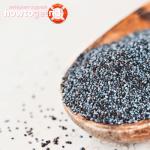I drank an energy drink and felt bad, what should I do? The impact of energy drinks on the human body. Lethal dose of energy drink
Health
Despite repeated warnings about the dangers of energy drinks, many continue to drink them, especially young and middle-aged people.
Millions of students and workaholics around the world consume energy drinks or caffeine mixed with alcoholic drink to increase your performance.
But what actually happens to our body when we drink such a drink?
Here is a step-by-step guide explaining the changes in our body, starting from the first 10 minutes and ending with 12 days after drinking just one can of this drink.
It is worth noting that studies have proven that energy drinks, as well as alcoholic drinks, have the same effect on the adolescent brain as the most powerful drugs.
The harm of energy drinks

The first 10 minutes after drinking one can of energy drink
Caffeine begins to penetrate the blood.
Heart rate and blood pressure begin to increase.
In 15-45 minutes
If you drink the drink quickly, after 15 minutes you will feel more alert and more concentrated. But if you drink the drink slowly, this effect will occur in about 40 minutes.
In 30-50 minutes
Caffeine absorption is complete. Your pupils dilate, your blood pressure rises, and as a result, your liver releases large amounts of sugar into your blood. The adenosine receptors in your brain are now blocked and you no longer feel sleepy.
Blood sugar levels spike, causing a spike in insulin. The liver responds to this by converting sugar into fat.
After 1 hour
Your body begins to feel a sudden drop in blood sugar (hypoglycemia). You quickly run out of energy and you begin to feel very tired.
An hour after drinking the drink, you will want to go to the toilet, and you will get rid of the water that was in the drink. This water was enriched with valuable nutrients, but instead of using them for their intended purpose, these substances came out along with the water.
Impact of Energy Drinks

In 5-6 hours
During this time, the amount of caffeine in the body decreased by half. For women taking birth control pills, this period can be up to 10 hours.
In 12 hours
During this time, the human body completely gets rid of caffeine in the blood. Still, the speed of caffeine cleansing depends on many factors, from age to physical activity.
After 12-24 hours
Withdrawal begins. About a day after drinking the energy drink, an unpleasant surprise awaits you. If a person often drinks such a drink, then during this period he begins to feel lethargic, exhausted, headaches and constipation appear.
In 7-12 days
Studies have shown that by this time the body becomes more resistant to regular consumption of a certain dose of caffeine. This means that you will no longer experience the same unpleasant feelings to the same extent.
Read also:
Non-alcoholic energy drinks

Today, anyone can buy a sweet non-alcoholic energy drink, even a schoolchild. While teenagers and older people continue to drink energy drinks and end up in the hospital, advertising continues to talk about how this or that drink invigorates and inspires.
Doctors in many countries, including Russia, have long been warning about the dangers of such drinks, that energy drinks cause problems with the cardiovascular system, potency, can cause insomnia and quickly deplete the body’s energy reserves.
Well, if you mix such a drink with alcohol, the situation gets even worse. This mixture can cause heart rhythm disturbances, seizures, and even kidney failure. It is worth noting that deaths have been repeatedly recorded after consuming energy drinks with alcohol.
Relative benefits of energy drinks

1. For a short period of time, a person receives a boost of vigor and energy.
2. It is possible to choose a drink with a high concentration of caffeine or with a large amount of vitamins and carbohydrates. The former help cope with drowsiness, and the latter increase the level of endurance during physical activity.
3. The vitamins in such drinks can stimulate vital processes in the human body, and glucose can quickly enter the bloodstream and provide energy to the muscles and brain.
4. Thanks to its convenient packaging, energy drinks can be taken with you anywhere and consumed almost anywhere. For some, they can replace a cup of coffee.
5. Most 8-ounce cans of the energy drink contain 80 milligrams of caffeine, which is less than the 400 milligram limit recommended by doctors. Coffee may contain more caffeine than an energy drink (about 300 milligrams on average).
Why are energy drinks harmful?

1. Drinking more than 2 cans of energy drink per day can significantly increase your blood pressure and may also increase your blood sugar levels. The result is hypertension and diabetes.
2. Since deaths after consuming energy drinks have been officially recorded in Europe, in some countries they can only be purchased in pharmacies.
3. The vitamins contained in energy drinks do not form a balanced complex.
4. If a person suffers from a disease of the heart, blood vessels, nervous system, pancreas or liver, then consuming energy drinks will only worsen the situation. The same applies to those who are predisposed to the above diseases.
5. The energy drink itself does not provide energy, but opens the channels of the body where internal resources are contained. As a result of using energy reserves, the body is depleted, a person may experience nervous overexcitation, and with frequent use, fatigue increases, insomnia, irritability appear, a person is more prone to nervous breakdowns and depression.
6. With regular consumption of energy drinks, the body gets used to caffeine and over time asks for a larger dose, and a large dose of caffeine depletes the body and encourages frequent urination, and this in turn removes salts from the body (in a fairly large volume).
7. A large concentration of B vitamins can lead to disruption of the nervous system, increase heart rate, lead to tremors in the limbs and greatly weaken the body.
8. The dose of amino acids taurine and glucuronolactone in one can of energy drink exceeds daily norm 500 times. And if you consider that they are consumed together with caffeine, then such a mixture can lead to severe exhaustion of the human nervous system.
9. Caffeine and other ingredients in energy drinks irritate the stomach lining, which means your risk of developing stomach ulcers and gastritis increases.
10. Energy drinks are high in sugar, which means high in calories. Caffeine, as a stimulant, can cause anxiety, nausea, dehydration and increased heart rate.
11. Between 2007 and 2014, in the US alone, the number of people hospitalized due to energy drink use doubled. These data were shared by the Substance Abuse and Mental Health Services Administration (SAMHSA), which is part of the US Department of Health and Human Services.
Composition of energy drinks

There are also extracts of guarana, tea or mate, which also contain caffeine.
Sometimes the manufacturer calls caffeine differently: mateine or theine, but in fact it is the same caffeine.
Other stimulants, such as theobromine and theophylline, which are homologues of the same caffeine.
* Carnitine.
This component promotes rapid oxidation fatty acids. This means that it enhances the overall metabolism in our body. As a result, a person’s level of muscle fatigue decreases.
* Taurine.
Some believe that this component of energy drinks, as it accumulates in muscle tissue, leads to improved muscle (and heart) function. However, medical experts claim that taurine has absolutely no effect on muscles. Despite this, in one can of energy drink its volume can range from 400 to 1000 mg. This begs the question: why is it needed then?
* There are also vitamins (in particular B vitamins), such as carbohydrates (glucose, sucrose).
It is worth noting that the body needs B vitamins, and if you are deficient in them, your body will tell you about it. But an excess of these vitamins (which an energy drink can provide) can hardly be considered beneficial for a person.
Energy drinks - non-alcoholic or low alcohol drinks which have a stimulating effect on the central nervous system. After the first jar you drink, you will experience long-awaited relief and the ability to work at an accelerated pace. This is a real salvation for a student, office worker, athlete, driver, nightclub visitor, as well as simply tired people who want to tone up their body. Everyone thinks that energy drinks are a modern invention. However, many of their constituent components have been used as stimulants since ancient times.
But few people know that an overdose of energy drinks leads to a rapid depletion of the body's resources. Let's take a closer look at this issue and find out whether energy drinks are harmful or beneficial to the body? What are the symptoms of an overdose of energy drinks and what first aid methods will be needed if necessary.
Composition of energy drinks
Energy drink manufacturers insist that their drinks are only beneficial and are coming up with new flavors every day. What are the active ingredients in energy drinks?

- Caffeine. This component is included in almost all energy drinks. Acts on the body as a stimulant.
- Taurine. One can of the drink contains 400–1000 mg of the substance. This is a sulfonic acid that accumulates in muscle tissue. Used as biological active additive. It is credited with antioxidant properties. According to medical data, taurine has no effect on the body.
- L-carnitine. Used to enhance metabolism and reduce fatigue. It is worth noting that this substance is independently produced by the body in sufficient quantities.
- Guarana and ginseng are pharmaceutical plants that have biostimulating and general tonic effects.
- B vitamins. Used to activate metabolic processes.
- Melatonin for adjusting the body's circadian rhythms and regulating the functioning of brain cells.
- Matein. Substance found in yerba mate tea South America. Ancient tree extract copes with hunger and eliminates excess weight.
In addition, almost all energy drinks are highly carbonated and contain a huge amount of carbonic acid.
Types of energy drinks
Tonic drinks were used in the first stages of the development of civilization. Ancient energy drinks were classified as stimulants of natural origin. Tea, herbs, and coca leaves were used as energy drinks.
Modern energy drinks come in the following types:
Harm of energy drinks to the human body
Many people think that consuming energy drinks replenishes the body’s resources, while the harm of energy drinks on the human body when consumed in excess has long been proven by scientists. The energy drink stimulates the functioning of the cardiac, nervous and endocrine systems. As a result of consumption, the body experiences stress and begins to work at double speed, releasing adrenaline into the blood. In this state, the resource of internal organs decreases, and the tone of the body increases.

We must not forget that there are certain contraindications to drinking energy drinks:

Symptoms of energy drink poisoning
After drinking an energy drink, the nervous system is excited, the ability to work increases, vigor, and mood are elevated. After the stimulant wears off, fatigue, irritation, depression sets in, and the person starts drinking energy drinks again, which is absolutely forbidden to do.
Excessive consumption of energy drinks and exceeding the recommended daily intake may result in the following symptoms of overdose:

Over time, with frequent use of energy drinks, the nervous system is weakened, and gastrointestinal distress appears. With frequent overdose, a person may experience mental disorder. In rare cases of severe overdose of energy drinks, deaths from cardiac arrest have been reported.
First aid for energy drink poisoning
If a person becomes ill after drinking an energy drink, he needs first aid. In severe cases, the patient must be taken to a medical facility.
- Clear the stomach of any remaining drink by inducing vomiting.
- Provide access to fresh air.
- Taking sorbents and drinking plenty of fluids will help the body cleanse itself faster.
- If a person becomes very ill, has a rapid heartbeat, a red face, high blood pressure, or has lost consciousness, then do not hesitate - call an ambulance.
You can drink energy drinks, but not on a regular basis, in recommended doses, when a person is completely healthy and has no contraindications or chronic diseases.
A person who knows what energy drinks are made of is unlikely to be surprised by the information that they harm the body. But then why are they sold freely even for teenagers? It's simple.
The substances in the composition themselves do not have a harmful effect. Death from energy drinks occurs if consumption is regular or a one-time dose was consumed that provokes death.
In addition, energy drinks are firmly entrenched on shelves next to alcoholic beverages. But the explosive mixture of caffeine, taurine and ethyl alcohol is a different story, and not always with a good ending.
What are energy drinks made of?
 The invigorating effect after taking one jar of such a cocktail is quite easily explained. The ingredients are selected in such a way as to have an effect as quickly and effectively as possible. However, all organisms are different, and energy liquid is produced in standard volumes. This explains the frequent overdoses of the drink.
The invigorating effect after taking one jar of such a cocktail is quite easily explained. The ingredients are selected in such a way as to have an effect as quickly and effectively as possible. However, all organisms are different, and energy liquid is produced in standard volumes. This explains the frequent overdoses of the drink.
Ingredients of a standard energy cocktail:
- nervous system stimulants of synthetic origin (one of the main components is caffeine or guarana);
- substances that help the body produce energy as quickly as possible (sugar, glucose, etc.);
- components that speed up metabolism (taurine).
Colors and flavors are also common ingredients in many energy drinks. Often these substances are artificial or identical to natural ones, which is not beneficial.
Vitamins, which make up the smallest part of the composition, carry a hidden meaning. A person who sees information about a vitamin complex on a jar a priori begins to consider the product healthy. But that’s not why they were added to energy drinks.
The vitamins in the energy drink allow you to speed up your metabolism so that you can open up the body's internal reserves.
However, poisoning from energy drinks most often occurs when they are alcoholic. During a fun party, it is difficult to control the amount of alcohol you drink. Because of this, a serious overdose occurs, which often leads to death.
The influence of energy drinks on the human body
 A person who has drunk too much energy drinks first feels cheerful and uplifted. But gradually, when more and more harmful substances are absorbed through the gastrointestinal mucosa, signs of overdose are observed.
A person who has drunk too much energy drinks first feels cheerful and uplifted. But gradually, when more and more harmful substances are absorbed through the gastrointestinal mucosa, signs of overdose are observed.
One jar of such a cocktail is equivalent to brewing and drinking a 200-gram pack of strong coffee once.
Energy drinks do not supply the body with additional strength, as is commonly believed. Energy is extracted from the body by force. Each of the cocktail ingredients has a specific function. Due to their impact, the body is forced to find additional strength.
All this happens to the detriment of the health of internal organs, especially the heart, which has to work hard. In addition, the body loses a large amount of fluid necessary to process caffeine. Subsequently, this disrupts all metabolic processes.
Lethal dose
The lethal dose of an energy drink that contains caffeine is at least 70 half-liter cans for a person weighing 70 kg. However, signs of poisoning can be observed after two jars. It all depends on the health of the body, the presence or absence of chronic diseases and other factors.
The lethal dose of caffeine for humans is 10-15g.
To whom are they prohibited?
However, the standards described above are suitable for the average, and most importantly, healthy human body.

- Energy drinks have several contraindications for use. Persons who are at risk are strictly prohibited from drinking cocktails.
- pregnant women, nursing mothers;
- minor children;
- elderly people;
- persons who have diseases of the cardiovascular system, liver and kidneys;
- for diabetes mellitus;
for allergies, bronchial asthma.
Symptoms of poisoning
An overdose of energy drinks differs in the severity and duration of symptoms. Initially, the victim may not feel any abnormalities in the functioning of the internal organs, but as the active substances are absorbed from the stomach into the blood, the symptoms of poisoning will intensify.
- What signs appear due to a cocktail overdose:
- tremor of the hands or the whole body;
- headache;
- nausea, vomiting;
- impaired coordination of movements;
- a sharp increase in blood pressure, increased heart rate;
- facial hyperemia;
- loss of consciousness;
 nervous manifestations.
nervous manifestations.
In case of an overdose of an energy drink that contains ethyl alcohol, in addition to all the symptoms, the patient experiences inappropriate behavior and a complete or partial lack of consciousness.
However, health problems are observed not only in those individuals who have once abused a large dose of coffee drink.
If a person takes energy shakes on a regular basis, they may also experience a number of health problems. As a rule, such individuals are diagnosed with diseases of the cardiovascular system, disorders of the digestive tract and nervous disorders.
Treatment
If the victim shows signs of a severe overdose, he must be given first aid, and then consult a doctor. This is especially necessary if the person is intoxicated.

- First aid:
- Place the patient on a horizontal surface, unfasten all the top buttons on the clothes. Provide fresh air flow. To do this, open the window.
- When the main part of the cocktails has left the body through vomiting, the patient should drink the intestinal sorbent, following the instructions on the package. This could be charcoal, smecta, polysorb or any other means at hand.
- Call an ambulance and make sure that the person does not lose consciousness until the doctor arrives.
It is prohibited to give the victim any medications. This is especially true for heart medications and drugs that lower blood pressure. Incorrect selection and dosage of the drug can cause shock, collapse or cardiac arrest.
To prevent energy drink poisoning, they should be consumed in moderation and only when absolutely necessary. Under no circumstances should this be done on an empty stomach.
To feel good, a person needs to get enough sleep. All other means for vigor have only a temporary effect, and it is also very harmful to the body.
An energy drink is a non-alcoholic drink whose main ingredient is caffeine. The first energy drink appeared in 1960 in Japan. Energy drinks began to be sold in Europe in 1987, and only 10 years later they appeared on sale in the United States. These drinks are presented on the market as stimulants that can quickly invigorate, as well as increase concentration and performance.
Soon after their introduction, energy drinks quickly became part of youth culture - they were often mixed. Energy drinks have developed a reputation for being quite unhealthy drinks, the uncontrolled sale of which hastened to be limited.
The World Health Organization has opined that energy drinks “may pose a health hazard,” and the American Academy of Pediatrics has advocated banning the consumption of such drinks by children. In response to these statements, the American Soft Drink Manufacturers Association assures that the drinks do not pose any harm to health, because they contain well-studied components that are also found in other products.
In addition to caffeine, the energy drink may contain the amino acid taurine, guarana, a natural stimulant, some vitamins, sugar and L-carnitine, which promotes fat burning. Experts studying these components note that their simultaneous presence and combination with caffeine enhances the effect of each substance.
John Higgins, a sports cardiologist at the University of Texas, notes that energy drinks can be especially dangerous for some people: young people under 18, pregnant women, people with caffeine sensitivities, and those who In principle, he rarely drinks caffeine. In addition, those who take medications intended to combat attention deficit should stop taking energy drinks.
What happens if you drink too much energy drink?
400 mg of caffeine (the amount found in four cups of coffee) is considered a safe daily dose for an adult without health problems. You should not increase this amount - the consequences of an overdose can be quite serious.
The interaction of caffeine with taurine and other components causes an increase in heart rate. It beats faster, blood pressure rises, levels of stress hormones rise, and in some cases the blood becomes thicker.
There are several known cases after drinking several cans of energy drink - after examination and tests, doctors were unable to identify any problems with the heart and blood vessels, except for increased levels of caffeine and taurine in the blood.
Researchers emphasize that energy drinks are much more dangerous than coffee, because energy drinks also contain other components. This was shown in a recent study in which some participants drank an energy drink, while others drank a drink containing only caffeine (it did not contain taurine, L-carnitine and other substances). The 18 participants in the experiment were observed for 24 hours - blood pressure was measured and the condition of the heart was monitored. The researchers were able to detect noticeable changes in the functioning of the cardiovascular system: blood pressure was increased by 5 points (caffeine increased this indicator by only 1 point) - the effect lasted for six hours.
The more energy drinks you drink, the more caffeine will enter your body. In some cases, an overdose is possible, accompanied by anxiety, insomnia, cramps and stomach pain.
Scientists pay special attention to the use of energy drinks by teenagers. They explain that energy drink drinkers are more prone to deviant behavior, are more likely to smoke, drink alcohol and drugs, and are also at high risk of developing depression.
A sip - and you are cheerful and fresh for several hours. What magic. You can sleep less and get more done. But what will you have to pay for vigor?
The answer is disappointing: retribution will come in the form of cardiovascular diseases, a weakened nervous system, weak immunity, and even dependence on these drinks.
Caffeine
Caffeine constricts blood vessels and increases blood pressure, thereby causing a surge of vivacity. But, alas, not for long. After some time, a “rollback” occurs, the person feels lethargic and weak, even more so than he felt before taking the energy drink.
Caffeine also removes water from the body and has a diuretic effect. But many people drink energy drinks to quench their thirst. It turns out the opposite effect, thirst does not go away, but the body becomes even more dehydrated.
And one more danger: caffeine is addictive. The body begins to demand more and more vigor - it gets hooked on energy drinks. If you drink the drink often, then one jar will soon not be enough. The dose will need to be increased. And receive even more harmful substances.
Guarana herb
It contains a lot of caffeine. Three times more than coffee. And as a result, the energy can contains an overwhelming amount of this unsafe substance.
Taurine
It is an amino acid or vitamin-like substance. It improves energy metabolism in our body and has a positive effect on blood pressure. The problem is that the taurine content in the drink is several times higher than the permissible daily allowance for humans.
Glucuronolactone
If you drink two cans of the drink, you will exceed the daily norm of glucuronolactone by almost 500 times. Scientists cannot say exactly what consequences the combination of these two components will have: taurine and glucuronolactone, and even in such huge doses. It is not yet known how each substance may enhance the effects of the other. So taking them is not safe.
Vitamins
Vitamin C and B vitamins are usually added to energy drinks. There is no doubt that vitamins are beneficial. But not at a chemical company like this. Vitamin B in large quantities causes tremors of the limbs, rapid heartbeat and allergic reactions. Vitamin C reacts with preservatives and flavorings, resulting in the production of carcinogenic substances.
Mate and ginseng extracts
Very often they are mistaken for useful components - these are herbs. But in fact, the invigorating effect of these herbs is similar to the principle of action of an energy drink. For example, a cup of mate slightly “adjusts” the heart. What if you add a huge dose of caffeine to this cup? As for ginseng, for some people its combination with caffeine causes irritability rather than alertness.
Carbon dioxide
It ensures very rapid absorption of all elements of the energy drink into the blood. At the same time, carbon dioxide is bad. It causes the stomach to produce more gastric juice. Acidity increases, and all this can lead to gastritis and ulcers. However, almost any soda has this side effect.
Alcohol
Energy drinks with added alcohol are the most dangerous. The fact is that our body does not tolerate the double blow of caffeine and alcohol very well. And if you add a cigarette... All these things greatly constrict blood vessels. And with frequent consumption of energy drinks, it can result in a stroke and other serious problems. In many countries, such as the United States, energy drinks containing alcohol are prohibited.
Where does the vigor come from?
Within 3-4 hours after taking the energy drink, we feel a surge of strength. But these powers do not come from the drink. The energy drink mobilizes the last remnants of our body’s strength, those energy reserves that were put aside for the rainiest day. It squeezes the body dry.






